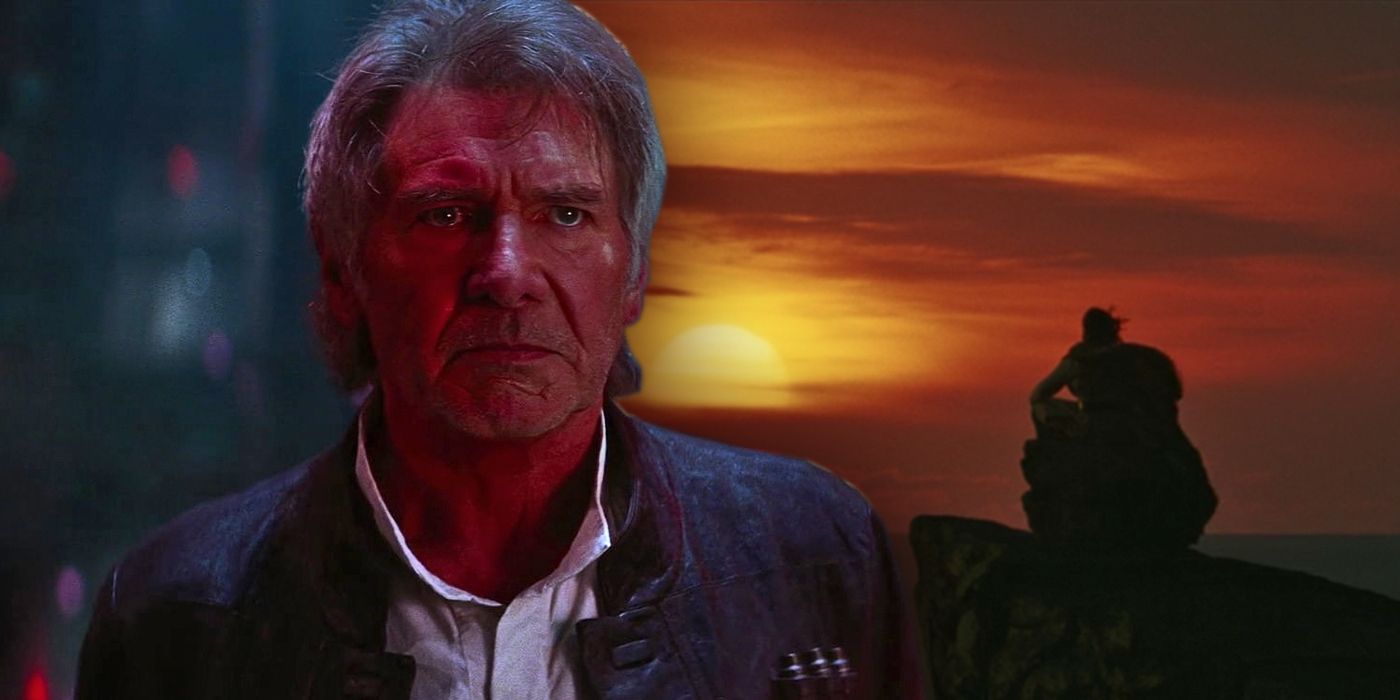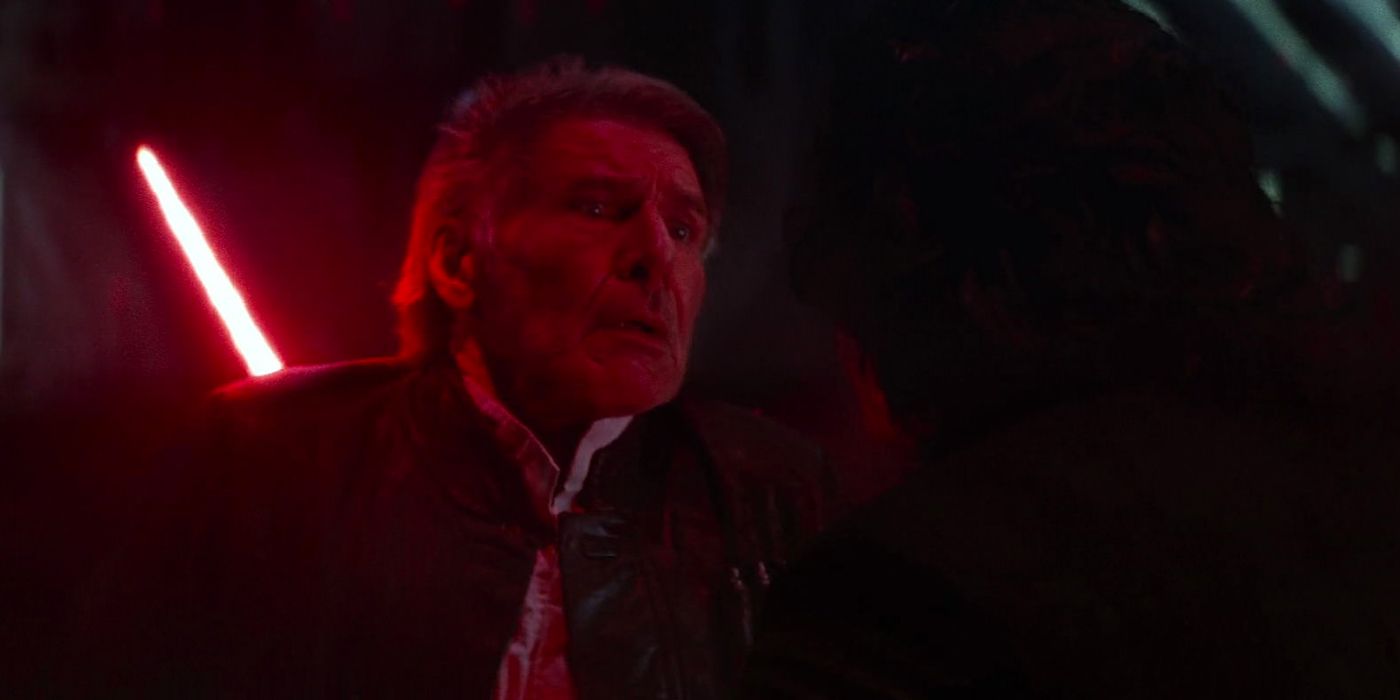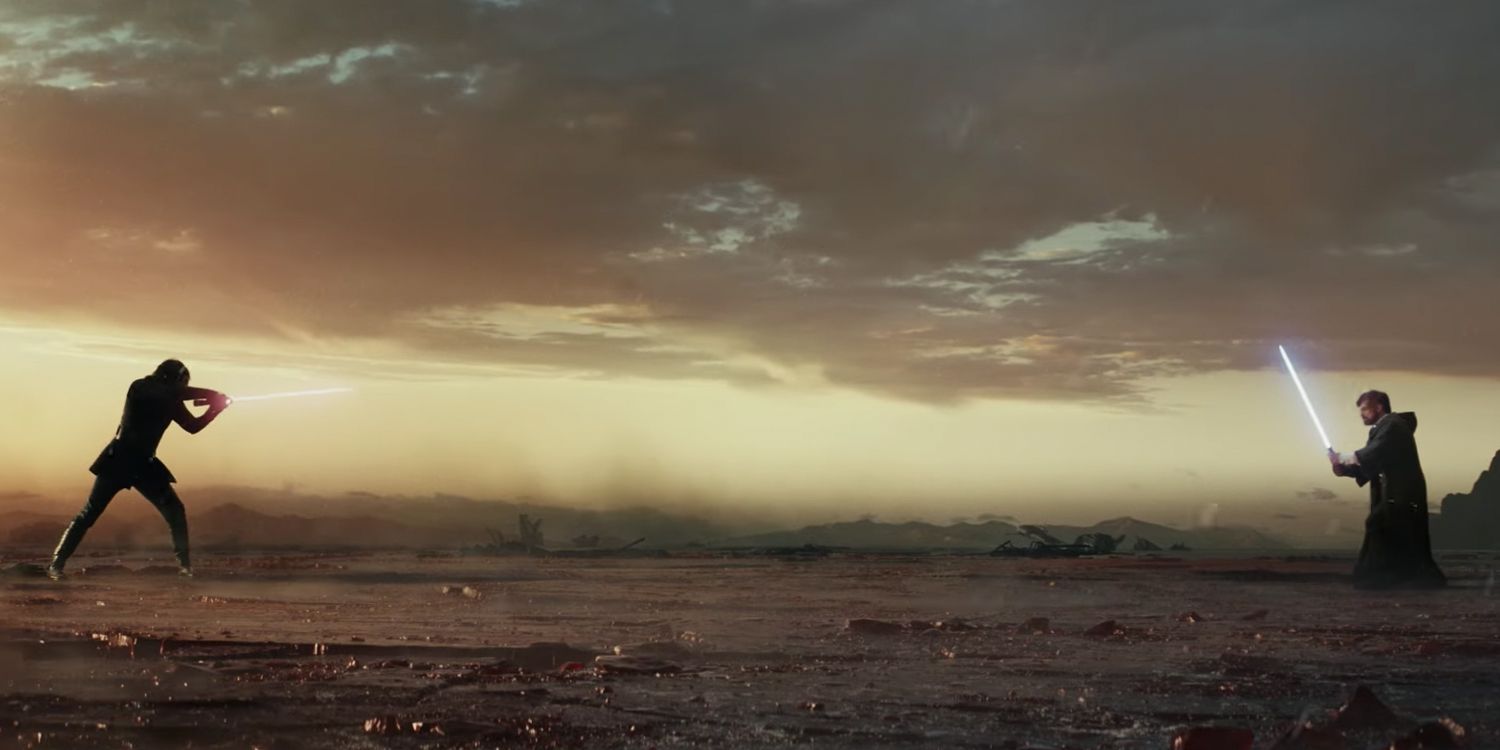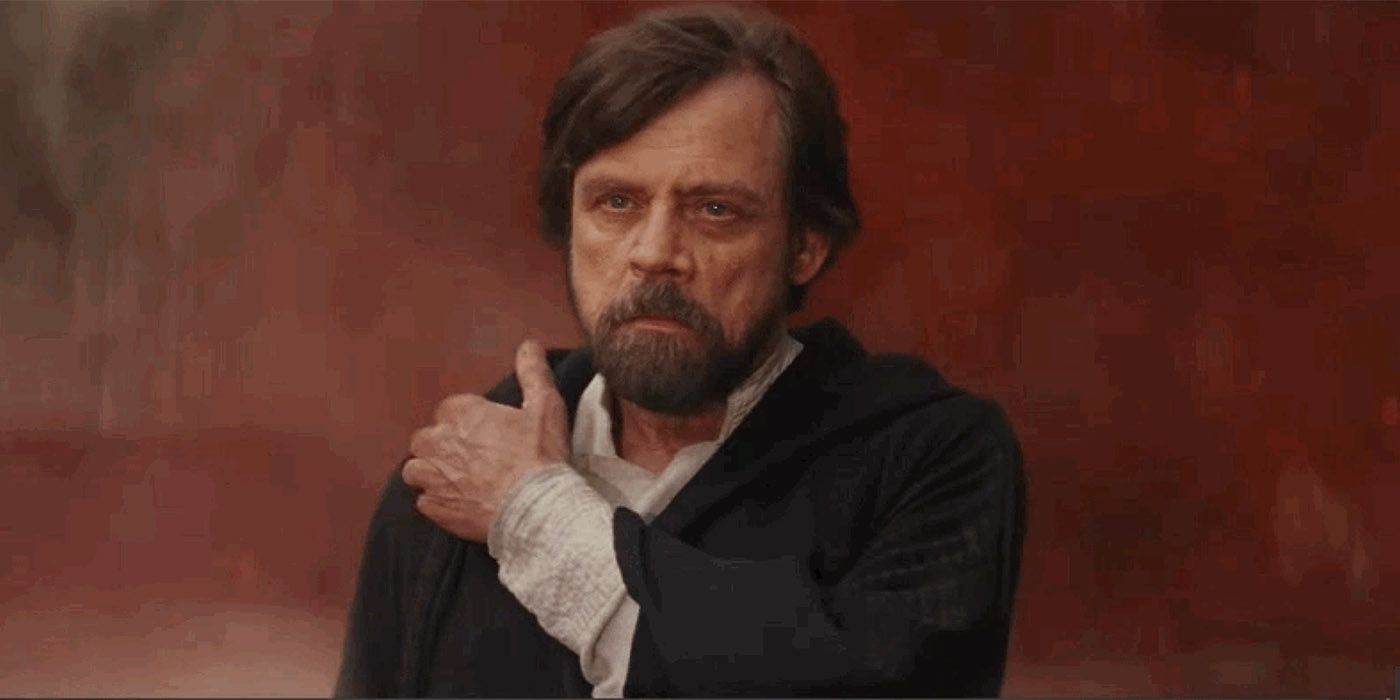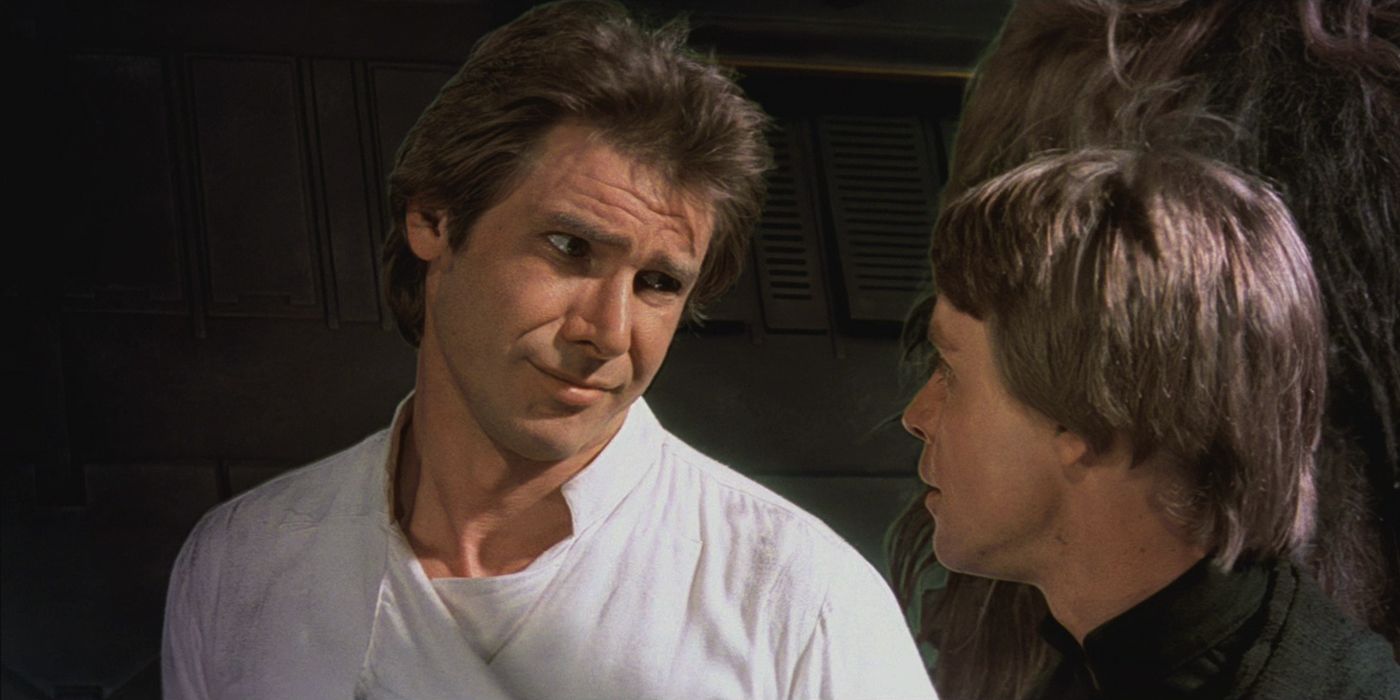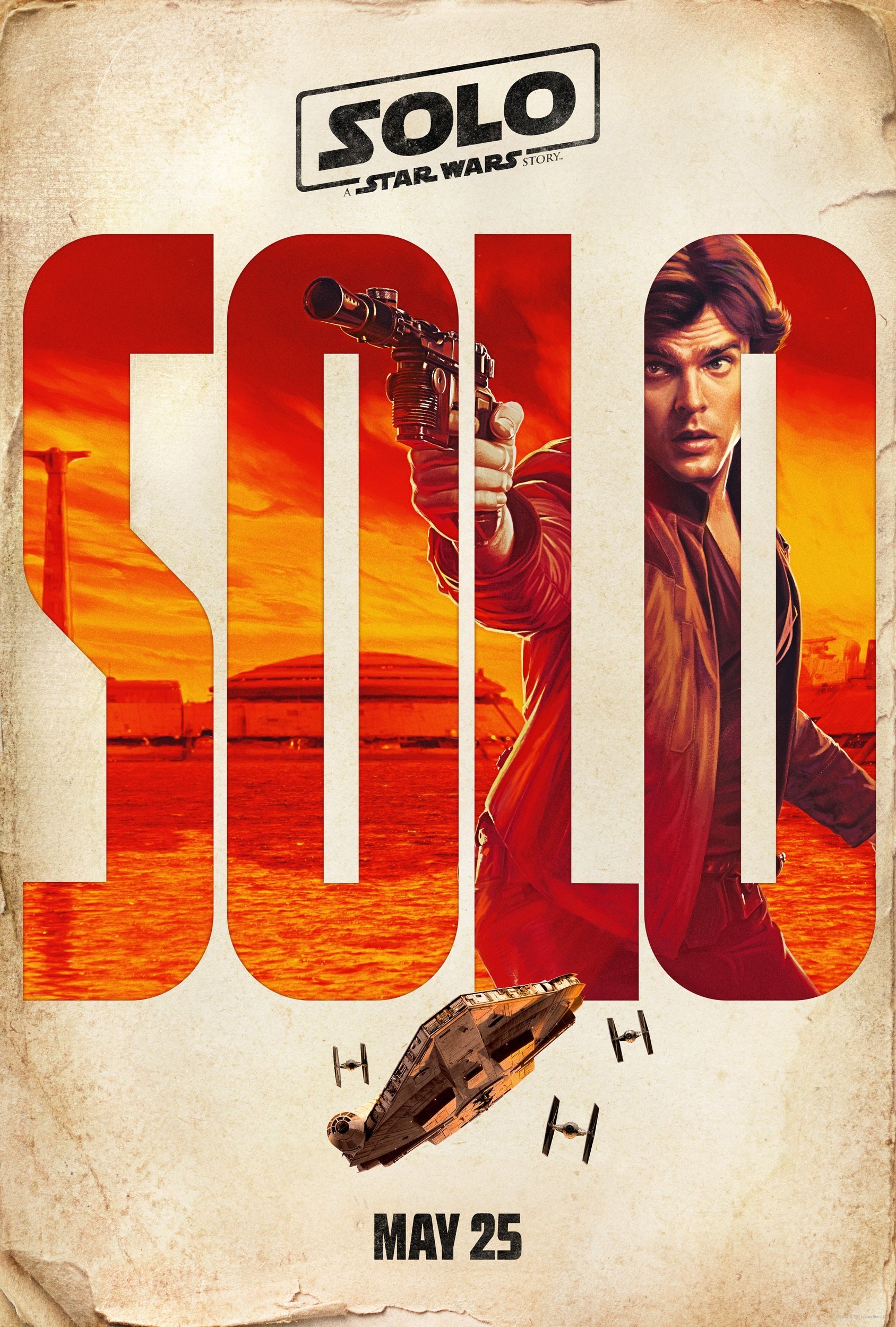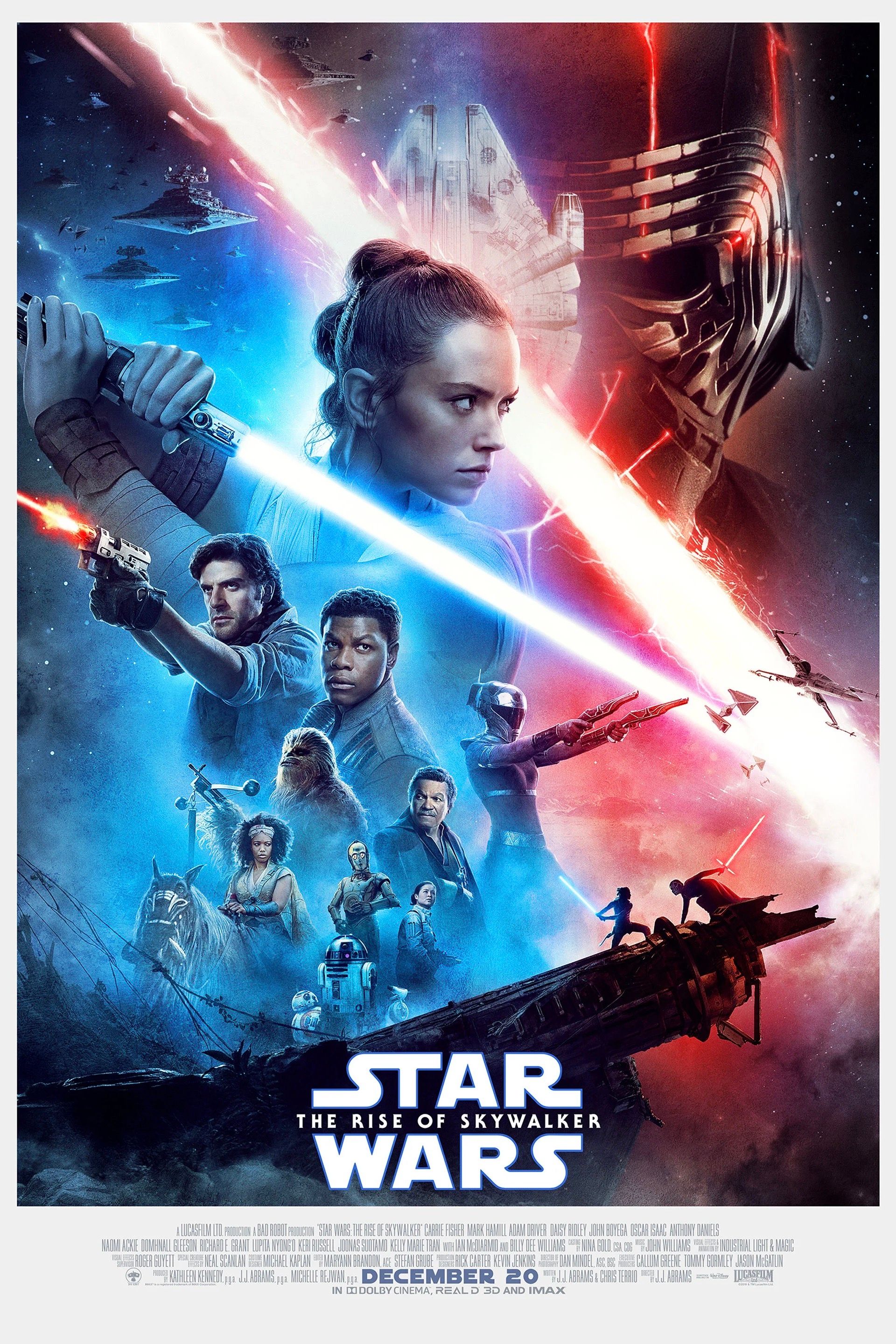Across the first two entries of the Star Wars sequel trilogy, we've had the death of two original trilogy heroes: Han Solo and Luke Skywalker. And while both have been highly emotional, it's the latter Jedi Master that's ultimately the stronger farewell.Behind all the ship swooping and lightsaber wooshing, Star Wars is an epic space opera of love and loss, with many emotional deaths across its nine movies. From Obi-Wan to Darth Vader, Padmé to Owen Lars and Aunt Beru, and even the entire cast of Gareth Edwards' Rogue One, the various writers and directors have never been afraid to swing the scythe of death.Related: Snoke's Death In The Last Jedi Is The Best Movie Twist In YearsIndeed, the Disney years of Star Wars have been iconized by the major departures of Han Solo in The Force Awakens and Luke Skywalker in The Last Jedi. Killing off two of the galaxy's biggest classic characters was a bold move, rocking fans in 2015 and 2017 respectively. But it's Luke Skywalker's death that leaves the biggest impact.This Page: What Made Both Han & Luke's Deaths Great
Han Solo's Death Was Essential In Rebooting Star Wars
Charting unknown waters beyond George Lucas' original trilogy, Disney's sequel franchise has introduced a cast of newcomers like John Boyega's Finn, the rolling BB-8, and of course, Daisy Ridley's Rey. Linking the old and the new to bring back fans of Lucas years, The Force Awakens saw the return of Harrison Ford's rugged smuggler and an all-too-brief appearance of Hamill's loner Jedi.
Han Solo had reverted back to his old self, a rogue charting the galaxy to make a quick buck, but over the course of Episode VII came to fill the mentor role of Alec Guinness' Obi-Wan Kenobi, teaching Rey and Finn in the ways of the galaxy as Ben had done to Luke decades before (albeit not the ways of the Force). And, just as Obi-Wan was eventually revealed to be a part in Anakin's tragic fall to becoming Darth Vader, so too did Han have a shocking connection to the series' new villain: Kylo Ren. The movie only briefly touched on the breakdown of Han and Ben Solo's relationship before leading to a shadowy climax at the Starkiller Base. With Han finally listening to Leia, he was ready to take ownership of his part in Ren's turn to the dark side and attempted to him back to the light. This didn't go to plan, with Kylo plunging his lightsaber through his father's chest and watching him tumble to his death, a key step in his turn to the dark.
It was always on the cards that Solo wasn't going to make it to the end of the sequel trilogy, paving the way for the new blood to take over. As far back as Return of the Jedi, Ford has petitioned for Solo's death, and whether or not that had an influence, the actor was right it would leave an impact.
Related: Last Jedi Novelization Has Solo: A Star Wars Story Tease
You can certainly see how Solo's death got the "emotional weight" that Ford was hoping for, but how does it compare to the Skywalker swansong?
Luke Skywalker's Death Was A Story Of Legacy
Luke Skywalker's sacrifice is, within The Last Jedi, a stamp on the movie's themes. The entire story is - as Yoda said explicitly - about learning from failure, and the biggest failure present in the film is the one that created the entire new conflict in the first place: Luke's lapse of judgment in trying to kill an all-too-powerful Ben Solo. Him stepping out onto the salt plains of Crait saw him (like Han before him) take on an Obi-Wan style role, putting his life on the line to save the Resistance, atoning for his mistakes. Doing so through a Force projection across the galaxy from Ahch-To, rather than literally taking on the entire First Order, showed learning from mistakes and understanding the importance of the mental victory over physical.
But this is also the end of a character audiences have been following for forty years. It's not just Luke showing up Kylo Ren and realizing that the Jedi needn't end, it's the farm boy finding solace in his life choices and appreciating his position in the wider galactic conflict; his final moments after the Force strain see him spiritually return to the binary sunset of Tatooine, his work done. Across the saga, we've seen the focus of the Skywalker shift from Anakin to Luke, and now from Luke to Rey/Kylo, and the Skywalker son's death makes that realization part of the text.
Why Luke Skywalker's Death Was Better
As has been established, both of these deaths are generational moments, the end of some of the most iconic characters ever put on film. To say one is better is not to also argue the other is bad. However, it's hard to avoid how much stronger Luke's is.
Related: Luke Skywalker Didn't Change Personality For The Last Jedi
For starters, it was a surprise. Han's death being expected made the first viewing a painful dose of dramatic irony, but also meant there was little shock amongst fans. Few would have predicted Luke would die in The Last Jedi (the ending even leaked months before release and nobody put the pieces together), which immediately gives it a shocking, rawer feel. And that's before we get to the thematic reasoning.
Luke's death, in no uncertain terms, represents how important he is in the mythology. It changes even the most tangentially-related character - of course Kylo is humiliated and Rey humbled, but Poe is inspired - and is likely to have some powerful ramifications on the Saga going forward. Now, we can't know what J.J. Abrams will do in Episode IX, but it will be hard for it to not loom large in a way Han's death never did. One of the prominent criticisms of Episode VIII was how it sidestepped recognition of Han's death beyond some lip-service, but its impact in The Force Awakens was also lessened - to the point Chewbacca and Leia didn't even share a moment of mourning. The farewell moment itself was evocative, but it didn't conjure up the same far-reaching impact.
It really is about presentation in the movie and how the moment was led up to. Luke was more intrinsically tied into the Sequel Trilogy; his disappearance is the motivation for The Force Awakens, and the questions of his discovery power The Last Jedi. In contrast, Han was just a character with a past we knew, and his death was ultimately more important to grounding the new generation than it was in and of itself; this doesn't weaken Harrison Ford's role in Episode VII, it simply gives more weight to Hamill's in the sequel. There's a poetry to Luke's death in how it honors themes and ideas that have been threaded through the previous movies - his entire character is defined from essentially having discovered how underwhelming the Jedi were in the prequels.
-
Many have their gripes with The Last Jedi, but there is no denying that Rian Johnson crafted a near-perfect death for Luke. It's a challenging character arc - one even Mark Hamill was shocked by - but the action of sacrifice to save not only his friends, but the entire legacy of the Jedi was the pure, heroic Luke that we've come to expect, and took cues from the lessons he learned across the four previous movies: from Obi-Wan, Yoda, Rey, and even Han.
Next: Every Major Reveal From Star Wars: The Last Jedi's Novelization

